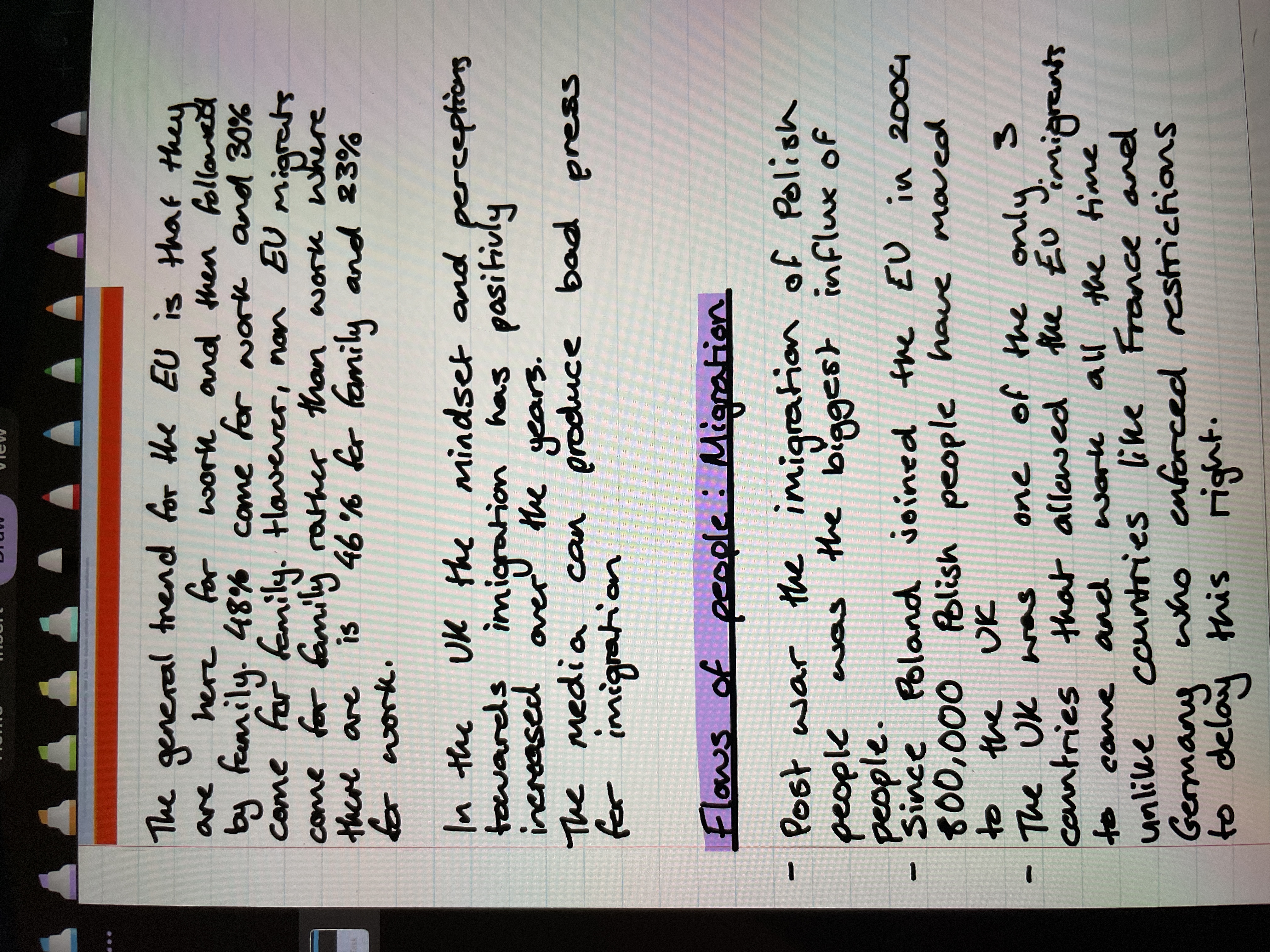What are the trends and reasons for migration in the EU, and how has the perception of immigration changed in the UK?

Understand the Problem
The text discusses immigration trends in the EU, specifically focusing on the reasons for migration (work vs. family) and the effects of public perception in the UK regarding immigrants. It also mentions historical context related to Polish immigration after Poland joined the EU in 2004.
Answer
EU migrants move for work; non-EU for family. UK views on immigration have grown more positive.
Trends in EU migration include work-related movement for EU migrants and family reasons for non-EU migrants. UK perceptions of immigration have become more positive, despite media negativity. The UK saw significant Polish migration post-2004 due to less restrictive policies compared to other EU countries.
Answer for screen readers
Trends in EU migration include work-related movement for EU migrants and family reasons for non-EU migrants. UK perceptions of immigration have become more positive, despite media negativity. The UK saw significant Polish migration post-2004 due to less restrictive policies compared to other EU countries.
More Information
Polish migration was notably large due to the UK's immediate opening of labor markets post-2004 EU expansion.
Tips
Distinguish between EU and non-EU migration reasons, and be aware of media's role in shaping perceptions.
Sources
- EU Migration to and from the UK - migrationobservatory.ox.ac.uk
- Migration into the EU: Stocktaking of Recent Developments and... - elibrary.imf.org
AI-generated content may contain errors. Please verify critical information